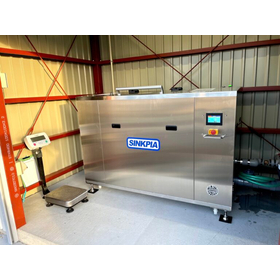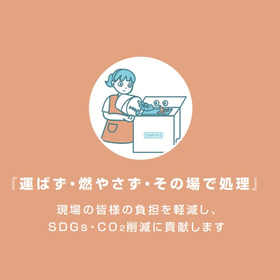[Case Study of Food Waste Disposal Machine] Childee Co., Ltd.
Since incineration treatment is not required, it is possible to reduce CO2 emissions associated with it! A reduction in annual processing costs can also be expected.
We would like to introduce a case study regarding the installation of the commercial food waste processor "Sinkpia GJ-100" at Childee Co., Ltd. This product can be installed at the location where waste is generated, allowing for "on-site processing" from the business premises. This eliminates the need to transport waste to a "waste processing facility," and incineration is also unnecessary, enabling a reduction in CO2 emissions. Additionally, a reduction in annual processing costs is also expected. Furthermore, our company does not sell out; our specialized staff will conduct regular maintenance visits. We provide comprehensive aftercare to ensure long-term use. [Case Overview] ■ Installation of the commercial food waste processor "Sinkpia GJ-100" *For more details, please download the PDF or feel free to contact us.
basic information
For more details, please download the PDF or feel free to contact us.
Price range
Delivery Time
Applications/Examples of results
For more details, please download the PDF or feel free to contact us.
catalog(4)
Download All CatalogsRecommended products
Distributors
"What we want you to discard is the conventional wisdom of food waste disposal machines." The development concept of Sink Pia is to process food waste 'without transporting, without burning, and on-site.' By self-processing food waste within facilities, it contributes to CO2 reduction and the SDGs. Japan's food waste disposal, which has relied heavily on incineration, is at a turning point, and many companies are entering the food waste processing machine industry to meet the needs of the times. However, it is also an industry where many companies have been forced to withdraw due to issues related to research and development costs, as well as a lack of knowledge, experience, and skills. Some have already started demonstration experiments, focusing on the development of microbial houses using biodegradable materials, the development of devices for processing dirty biodegradable containers, and further research on resource recovery such as liquid fertilizers and soil conditioners from decomposed water. We aim to be a company that is needed by more customers and can realize a society that is friendly to the future of the Earth's environment.
























































